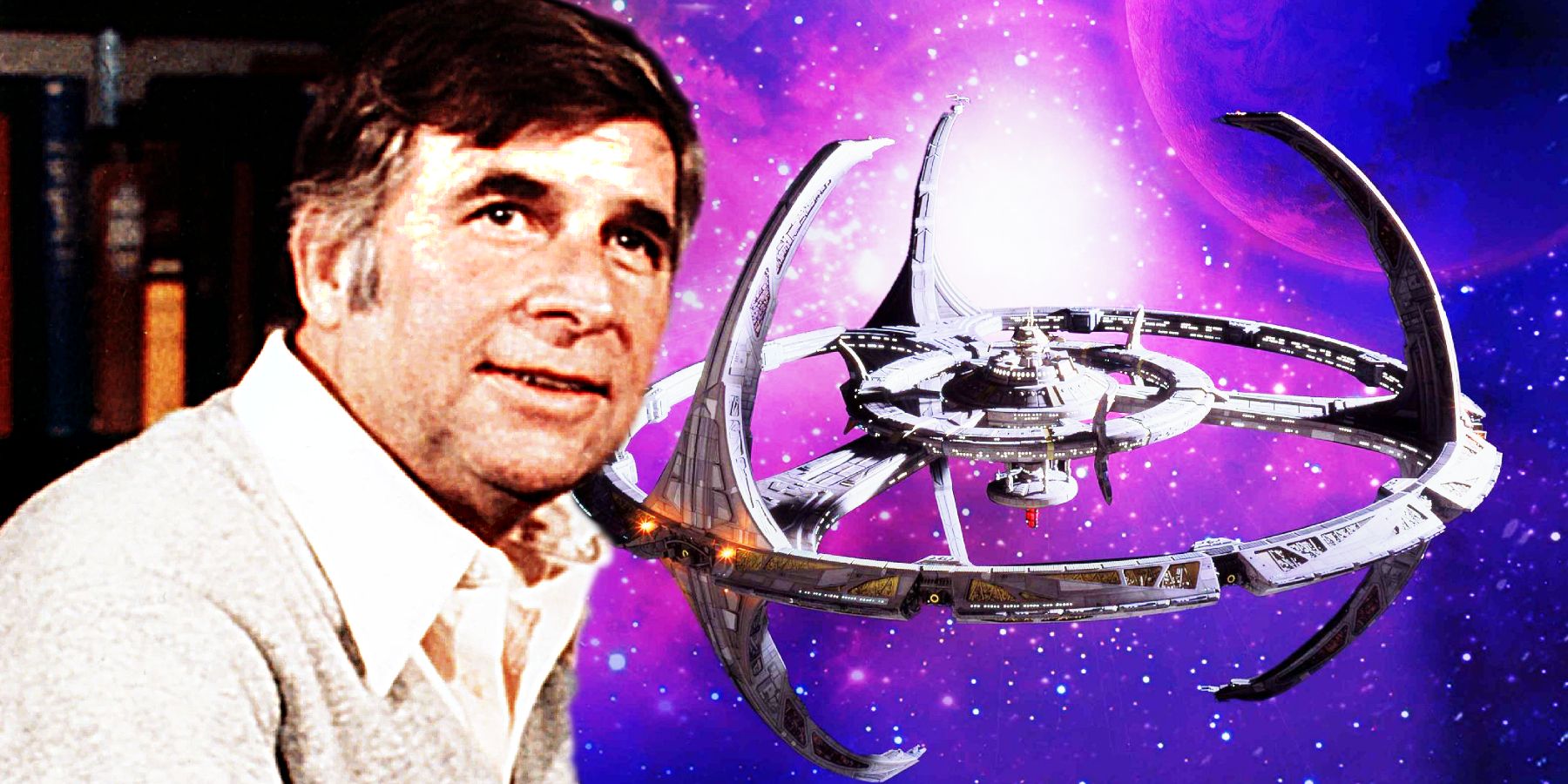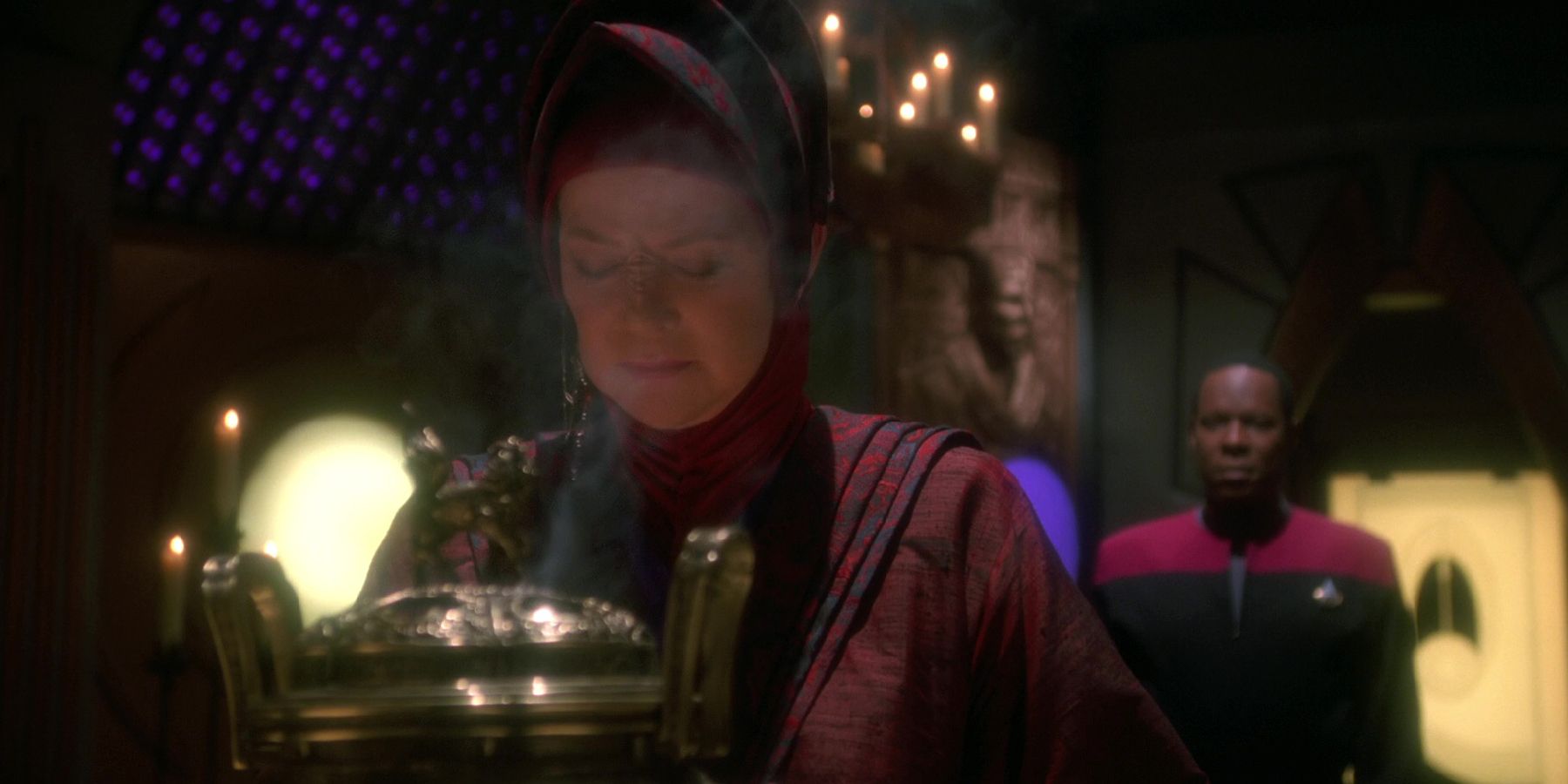
Why Gene Roddenberry Would Approve of Star Trek: DS9's Season 1 Finale

Exploring the connection between Gene Roddenberry's vision and Star Trek: Deep Space Nine's season 1 finale.
Gene Roddenberry's Vision and DS9
Star Trek creator Gene Roddenberry would have approved of Star Trek: Deep Space Nine's season 1 finale because it embodied his vision of 'infinite diversity in infinite combinations.' Fans and production staff have debated whether Gene Roddenberry would have approved of DS9 when it premiered in 1993, since the Star Trek creator had passed away in 1991. Over three decades after his death, debate over what Star Trek shows and movies best embody Gene Roddenberry's philosophy continues in fan circles.
Gene Roddenberry and Star Trek's Deep Space Nine Space Station
Star Trek: Deep Space Nine is a controversial show in some quarters of Star Trek fandom, due to its darker tone and the Dominion War arc. It can never be known whether Gene Roddenberry hated Star Trek: Deep Space Nine or not. However, despite DS9 being perceived by some to abandon Roddenberry's principles, there are multiple examples of how the show merely adapted those principles to the moral complexities of the mid to late 1990s. DS9's season 1 finale, 'In the Hands of the Prophets', is one such example, critiquing religion and zealotry while celebrating diversity, just as Roddenberry had always intended.
Vedek Winn meditates as Sisko stands behind her
Gene Roddenberry's Philosophy in DS9's Season 1 Finale
Robert Hewitt Wolfe, who wrote Star Trek: Deep Space Nine's season 1 finale, has previously discussed how 'In the Hands of the Prophets' was inspired by Gene Roddenberry's vision for the future. In the Star Trek: Deep Space Nine Companion, Hewitt Wolfe discussed how the episode depicts the separation of church and state by introducing Vedek Winn (Louise Fletcher), who wishes to impose Bajoran religious beliefs on the space station's multicultural school.
No one has the right to force anyone to believe the things that they believe. That's one of the beautiful things about Gene Roddenberry's vision of IDIC (Infinite Diversity in Infinite Combinations), and that was one of the things that we really wanted to hammer home here. Although Gene Roddenberry was a staunch atheist, he would surely have approved of 'In the Hands of the Prophets' treatment of religion. Keiko O'Brien (Rosalind Chao) refuses to bow to Vedek Winn's demands and commits to teaching an objective and scientific perspective, while acknowledging the perspectives of other cultures. Star Trek always explained religion with science, so Roddenberry would surely have approved of Keiko standing her ground with Vedek Winn.
DS9: Star Trek's Best Show About Religion
Gene Roddenberry was a rationalist at heart, and so he was resistant to portrayals of religion, which is why Star Trek: The Original Series and Star Trek: The Next Generation largely steered clear of more ambiguous discussions of faith. Star Trek: Deep Space Nine was completely different, because it had religion and faith at the very core of the series. The Bajorans have a religio-political society, who believe in the words of the Prophets. Crucially, DS9 avoided condescending to people of faith, and while Commander Benjamin Sisko (Avery Brooks) was uncomfortable about being the Emissary, he respected their beliefs.
The conflict between Winn and Sisko in the season 1 finale would set the stage for seven seasons of the DS9 commander battling with the more extremist end of Bajor's religious society. Rather than ignoring religion or waving it away with science like in Roddenberry's TOS and TNG, DS9 dug beneath the surface to explore why people are drawn to religion, as well as exposing the folly of blind faith. As a result, Star Trek: Deep Space Nine remains the franchise's best exploration of religious belief to date.















